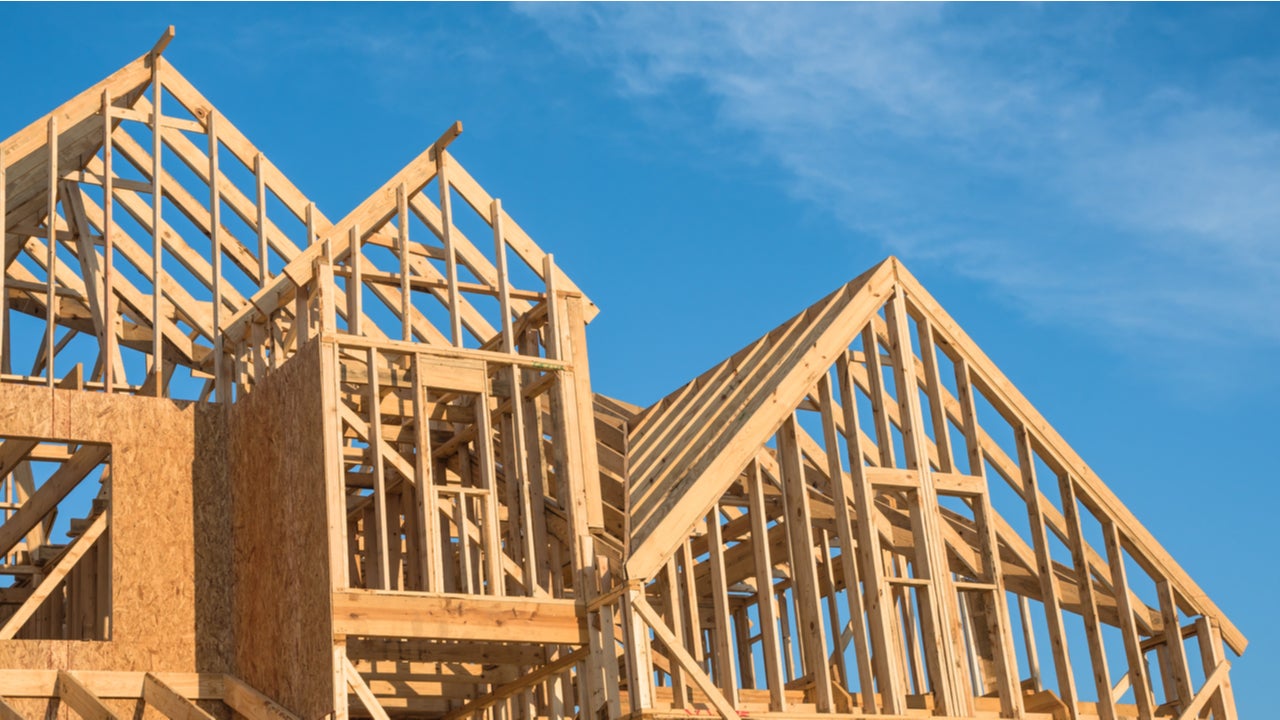

Finance
What Is Hard Money Construction Loans?
Published: February 17, 2024
Learn about hard money construction loans and how they can help finance your projects. Find out how to secure the funding you need for your construction endeavors.
(Many of the links in this article redirect to a specific reviewed product. Your purchase of these products through affiliate links helps to generate commission for LiveWell, at no extra cost. Learn more)
Table of Contents
Introduction
When it comes to financing a construction project, traditional bank loans may not always be the most feasible option due to their stringent requirements and lengthy approval processes. In such cases, hard money construction loans can serve as a valuable alternative, offering quick access to funding for real estate developers and investors.
Unlike conventional loans provided by banks and credit unions, hard money construction loans are typically offered by private investors or specialized lending companies. These loans are secured by the value of the underlying property, making them appealing to borrowers who may not qualify for traditional financing due to factors such as credit history, income documentation, or the nature of the construction project.
For those seeking to embark on construction ventures, understanding the intricacies of hard money construction loans is crucial. From the application process to the associated risks and benefits, this article will delve into the nuances of these alternative financing options, empowering readers to make informed decisions when exploring funding for their construction endeavors.
Understanding Hard Money Construction Loans
Hard money construction loans are short-term, high-interest loans that are used to finance the construction or renovation of real estate properties. Unlike traditional loans, which are based on the borrower’s creditworthiness and income, hard money loans are secured by the value of the property itself. This means that the property being constructed or renovated serves as collateral, reducing the emphasis on the borrower’s financial history and increasing the focus on the property’s potential value.
These loans are particularly attractive to real estate developers and investors who may not qualify for conventional financing due to reasons such as a short credit history, high debt-to-income ratio, or the unconventional nature of the construction project. Additionally, hard money construction loans are known for their quick approval process, making them an expedient option for those in need of immediate funds for their projects.
It’s important to note that hard money construction loans come with higher interest rates and fees compared to traditional loans. This is because the lenders assume greater risk by providing financing based on the property’s potential rather than the borrower’s financial profile. However, for many borrowers, the benefits of accessing quick capital and the flexibility offered by hard money lenders outweigh the higher costs associated with these loans.
Furthermore, hard money construction loans are typically short-term, usually ranging from six months to a few years. During this period, borrowers can use the funds to cover construction costs and then either sell the property for a profit or refinance with a traditional lender once the project is completed.
Understanding the dynamics of hard money construction loans is essential for anyone considering these financing options. By comprehending the unique characteristics and implications of such loans, borrowers can make informed decisions that align with their financial goals and construction project requirements.
How Hard Money Construction Loans Work
Hard money construction loans function differently from traditional bank loans, with a focus on the value of the property being constructed or renovated rather than the borrower’s financial history. The process typically begins with the borrower identifying a hard money lender who specializes in construction financing. After the lender evaluates the property’s potential value and the borrower’s construction plans, a loan amount is determined based on a percentage of the property’s anticipated value upon completion.
Upon approval, the borrower receives the loan funds, which can be used to cover construction costs, including materials, labor, and other expenses related to the project. Throughout the construction phase, the lender may conduct periodic inspections to ensure that the project is progressing as planned and that the funds are being utilized appropriately.
One key aspect of hard money construction loans is the interest reserve. Since borrowers typically make interest-only payments during the construction phase, the interest reserve is established to cover these payments. This reserve is funded by the loan amount and is held by the lender, ensuring that the interest payments are met without adding to the borrower’s out-of-pocket expenses during construction.
Once the construction is complete, the property’s value is reevaluated, and the borrower can choose to sell the property, refinance with a traditional lender, or secure long-term financing to pay off the hard money loan. It’s important to note that hard money construction loans often come with higher interest rates and fees, so borrowers should have a clear exit strategy to minimize the overall cost of the loan.
Understanding the mechanics of hard money construction loans is essential for borrowers to navigate the process effectively. By comprehending the loan structure, repayment terms, and exit strategies, borrowers can make informed decisions that align with their construction project goals and financial circumstances.
Pros and Cons of Hard Money Construction Loans
Like any financial product, hard money construction loans come with their own set of advantages and drawbacks, which borrowers should carefully consider before pursuing this type of financing.
Pros:
- Quick Access to Funding: Hard money construction loans offer rapid approval and funding, making them ideal for projects that require immediate capital.
- Flexible Approval Criteria: These loans are secured by the property’s value, allowing borrowers with less-than-ideal credit or financial history to qualify based on the project’s potential.
- Customized Terms: Hard money lenders often provide personalized loan terms, allowing borrowers to negotiate aspects such as repayment schedules and loan amounts.
- No Prepayment Penalties: Some hard money lenders do not impose penalties for early loan repayment, providing flexibility for borrowers who wish to refinance or sell the property upon completion.
- Opportunity for Profit: For real estate investors, hard money construction loans can facilitate the acquisition and renovation of properties with the potential for substantial returns upon resale.
Cons:
- Higher Costs: Hard money construction loans typically carry higher interest rates and fees compared to traditional financing, increasing the overall cost of the project.
- Short-Term Nature: These loans are designed for short-term use, requiring borrowers to secure long-term financing or sell the property to repay the loan within a relatively brief period.
- Risk of Default: If the construction project encounters challenges or delays, borrowers may face difficulties meeting the loan’s repayment terms, potentially leading to foreclosure or financial strain.
- Intensive Due Diligence: Hard money lenders may conduct thorough assessments of the property and the borrower’s construction plans, requiring meticulous documentation and project scrutiny.
- Limited Regulatory Protection: Unlike traditional lenders, hard money lenders may operate with fewer regulatory constraints, necessitating careful evaluation of the terms and conditions of the loan.
By weighing these pros and cons, borrowers can gain a comprehensive understanding of the implications of utilizing hard money construction loans for their projects. Assessing the potential benefits and drawbacks enables informed decision-making and strategic planning to optimize the financing of construction endeavors.
Finding the Right Hard Money Construction Lender
Choosing the appropriate hard money construction lender is a pivotal step in securing financing for a construction project. Given the unique nature of these loans and the diverse array of lenders in the market, borrowers must conduct thorough research and due diligence to identify a reputable and suitable lending partner.
Key Considerations When Selecting a Lender:
- Specialization: Look for hard money lenders with a proven track record in construction financing. Lenders experienced in this niche understand the complexities of construction projects and can offer tailored solutions.
- Transparency and Communication: Choose a lender who communicates clearly and transparently, providing comprehensive details about their lending process, terms, and potential challenges that may arise during construction.
- Reputation and Reviews: Research the lender’s reputation by seeking out reviews, testimonials, and referrals from other borrowers who have utilized their services for construction loans.
- Flexibility and Customization: Opt for a lender willing to customize loan terms to align with the specific needs of the construction project, offering flexibility in areas such as repayment schedules and loan amounts.
- Interest Rates and Fees: Compare the interest rates, origination fees, and other costs associated with different lenders to ensure that the overall expense of the loan remains manageable within the project’s financial framework.
Due Diligence Process:
During the due diligence process, prospective borrowers should gather essential documentation related to the construction project, including architectural plans, cost estimates, and timelines. This information enables lenders to assess the viability of the project and determine the loan amount and terms.
Moreover, borrowers should engage in open discussions with potential lenders, seeking clarity on all aspects of the loan, including the application process, disbursement of funds, inspection procedures, and the lender’s expectations throughout the construction phase.
Building a Strong Relationship:
Establishing a strong rapport with the chosen lender is crucial for a successful partnership. By fostering a collaborative relationship, borrowers can navigate the loan process more effectively, address any challenges that may arise during construction, and lay the foundation for potential future projects with the lender.
Ultimately, finding the right hard money construction lender involves a comprehensive assessment of the lender’s expertise, transparency, flexibility, and compatibility with the borrower’s project goals. By prioritizing these factors, borrowers can secure financing that aligns with their construction aspirations and sets the stage for a successful and mutually beneficial partnership.
Conclusion
Hard money construction loans present an alternative avenue for financing construction projects, offering unique benefits and considerations compared to traditional bank loans. For real estate developers and investors seeking expedient access to capital and flexibility in loan approval criteria, hard money construction loans can serve as a valuable resource.
By understanding the dynamics of hard money construction loans, borrowers can navigate the application process, manage the loan effectively during the construction phase, and strategize for the loan’s repayment or refinancing upon project completion. The rapid approval process and tailored terms provided by hard money lenders offer a distinct advantage for those embarking on construction ventures.
However, it is essential for borrowers to weigh the higher costs and shorter-term nature of these loans against the benefits of quick funding and flexible approval criteria. Careful consideration of the pros and cons, along with diligent research in selecting the right hard money construction lender, is paramount for a successful financing experience.
Ultimately, hard money construction loans can be a strategic tool for realizing construction projects, especially when traditional financing options are inaccessible. By leveraging these loans effectively and establishing strong partnerships with reputable lenders, borrowers can harness the potential of hard money construction financing to bring their real estate development visions to fruition.
As the real estate market continues to evolve, the role of hard money construction loans in facilitating innovative construction projects is poised to remain significant, providing a dynamic and adaptable financing solution for the ever-changing landscape of real estate development and investment.














